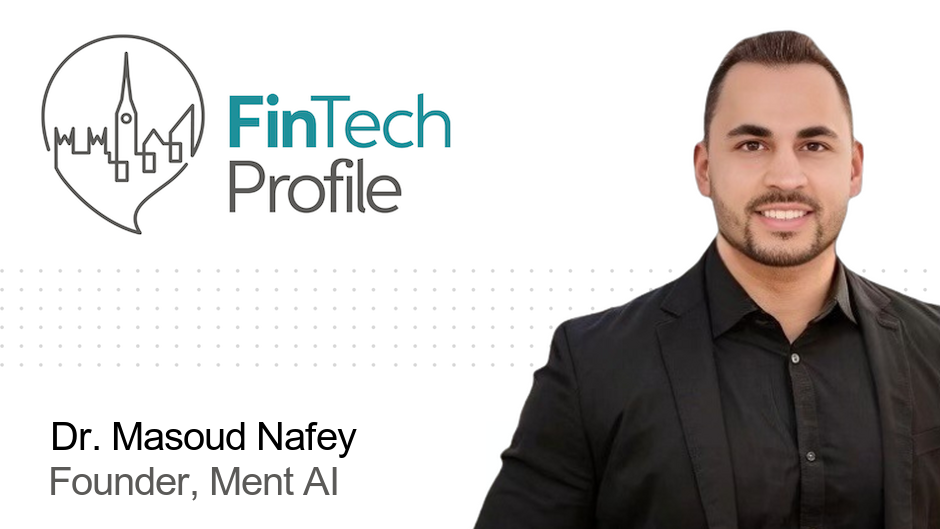Dr Mark Goldspink of the ai Corporation (ai)


This week on FinTech Profile, we talk to Dr Mark Goldspink, CEO of The ai Corporation (ai)
Founded in 1998, ai has a long and exciting heritage as one of the world’s leading companies in fraud, risk management and pioneering business intelligence from payments data. The company was purchased from the original founders in 2012 and today its fraud detection solutions, including new ‘state of the art’ neural technology, protects and enriches payments experiences for more than 100 banks, over 3 million multi-channel merchants and over 300 million consumer cardholders.
Over to Mark for his story.
—–
 Who are you and what’s your background?
Who are you and what’s your background?
Hi, I’m Dr Mark Goldspink and I’m CEO of ai.
After leaving university with a PhD in Chemistry, I was lucky enough to join a large multi-national oil company (Texaco Inc.) who provided a framework in which I was allowed to develop my skills and capabilities in an array of new and exciting roles. In order for me to successfully execute these P&L jobs, I was provided with first class business training and development for which I am still very grateful.
As well, as the strong business training, my back ground as a scientist fuelled my passion to pursue innovative solutions. However, these new innovations have always been practical and provided immediate returns in the pursuit of operational excellence. In a nutshell, I am passionate about streamlining processes in a way to drive greater efficiency.
Having spent over 12 years in the oil sector, I moved into payments in 2000. Petrol to payments was not as big a leap as one might think. I believe that oil companies, really changed the face of the credit card industry as they took cards many years before the high street retailers.
Despite this linkage, moving into the payment sector was a big leap, which has been very exciting. I spent 5 years at Retail Decisions as Managing Director and then as Vice President for CGI Inc, working on some very large payment outsourcing opportunities including winning and managing large payment contracts worth over $500m.
In 2013, I was lucky enough to start working with Ashley Head (who is highly recognised as a payment entrepreneur) on rejuvenating ai. I am fortunate to work with a highly performing and ambitious team, who are driven to re-engineer the current fraud and payment processes using machine learning technologies.
What is your job title and what are your general responsibilities?
To me outstanding service is non-negotiable and it is on this basis that the ai team focus on service and constantly look at ways we can service our customers better – a programme we call Total Service Transparency. A clear team strategy based on creating a culture of HAPPY PEOPLE FIGHTING and the values associated with this vision.
In our pursuit of this service vision there are several important things we are constantly refining and improving upon. Firstly, is the culture of the business and how we operate without ambiguity?
There are two main items we have worked on to pursuit Total Service Transparency, namely:
- A clear framework that the team members understand and operate confidently within
- A zero-ambiguity environment which empowers people to feel at ease when working with customers.
As CEO of ai, I am very fortunate to work with a world leading team of payment experts, which helps to make my job easier. I also spend my time looking to the future, refining our strategy and exploring business partnerships or acquisitions that grow value.
Can you give us an overview of your business?
At ai, we create unique payment solutions that include our new “state of the art” machine-learning technology. We believe that humans should spend more time on complex decisions if machines take care of the rest and our solutions are designed with that premise in mind. Our self-service fraud detection rules engine is now considered by industry ‘thought leaders’ to be best in the world.
Our ‘best of breed’ payment solutions are designed to help our clients grow profitably. Our team of experts cover the full spectrum of risk management and business analytics across the globe.
These innovative, easy-to-use self-service/self-learning solutions have been deigned to help provide our customers with greater controls. By doing this, we constantly strive to help our business partners create superior returns on their investments by using our solutions.
Tell us how you are funded.
The business, which is owned by VC, is now self-funding.
Why did you start the company? To solve what problems?
As stated above, we didn’t start the business, but we saw the opportunity to evolve it from a product based business into a world class service organisation. Put simply, “our why we come to work” is to allow our clients to take control by developing common sense/practical payment solutions.
To this end, we have long believed that data driven decisions are the only way to truly understand our customers. The days of “gut feel” subjectivity, are being replaced by data drive objectivity- and rightly so.
Nowhere more is this true than in the fraud prevention world – inevitably as businesses move more and more real-time, offer full omni-channel capability and accepts more payment types, new solutions are required
Therefore, doesn’t the common-sense approach lead you to the answer that it is machine learning tools allowing customers to take control of their data driven decision making?

Who are your target customers? What’s your revenue model?
Today, our fraud detection solutions, including our new ‘state of the art’ neural technology, protect and enrich payments experiences for more than 100 banks, over 3 million multi-channel merchants and over 300 million consumer cardholders.
Over the past 4 years, we have moved from being a product only business to a service based business – lumpy to smooth revenues. We have also expanded our range of solutions not only vertically within the fraud domain but horizontally across the payment landscape. The reason for making all of these changes was very simple – to create greater business resilience.
This new unique end-to-end offering has been constructed to target a gap in the market place and is constructed around the following technology and business principles:
- State of the art business rules technology– allow customers to take control
- Flexible and agile so new customer features could be deployed quickly
- No CAPEX with “pay as you go” business model (controllable OPEX).
If you had a magic wand, what one thing would you change in the banking and/or FinTech sector?
I’d like to see businesses in the FinTech sector taking a more common-sense approach. What I mean by this, is to remove organisation silos and to take a more holistic view across a business. We are very fortunate that many of our clients see the value in this approach and use our state of the art decision engines for more than just fraud and our quick to deploy cloud based payment solutions.
The first principals for running a business are profitable growth. At ai, we believe the objective of our business partnerships is to help our customers drive profitable growth. Doesn’t a common-sense approach suggest providing payment solutions that automate repetitive tedious activities and allow customers the controls they need to work on more proactive business opportunities?
Business history is littered with senior management subjectivity taking an organisation in the wrong direction creating new business activities that destroys profitable growth or worst still, destroys an organisation entirely.
On the assumption that “data driven decisions facilitate profitable growth” activities are seen as primary drivers for running a business. Our common-sense approach is augmenting these activities into a single approach to create even greater enterprise value.
What is your message for the larger players in the Finance industry?
The finance industry needs to embrace the latest technology by working with more agile entrepreneurial providers. Take A.I. the growing focus on customer experience means businesses now have no choice but to continuously improve their customer journey. A.I. is central to brands taking digitalisation to a new, exciting level. Ensuring they are accessible across all channels has become key and artificial intelligence is helping organisations boost accessibility and their bottom line.
Even the data collected by fraud platforms is being used for more than just identifying fraud. The data from fraud platforms can be utilised in many ways, for ‘good’, as well as ‘bad’. For example, in analysing spending patterns amongst customer data and helping marketing teams to develop targeted marketing campaigns. Purchasing data can also help a brand identify customer segments and establish target markets for advertising.
There are many factors driving the requirements for effective A.I. solutions for payments and transaction processing. As technology evolves, online fraud is becoming more prevalent and damaging, with financial services and e-commerce companies especially vulnerable to attacks.
Modern fraudsters have evolved their ability to detect vulnerabilities in systems and are shifting their targets to those weak links. They are using new tactics too –distributed networks, big data and the dark web to locate vulnerabilities and maximise the associated risk. Fraudsters are also devising multidimensional tactics that inflict damage by sequentially compromising more than one point of vulnerability.
A.I., more specifically machine learning, is already helping organisations combat fraud in ways that just weren’t previously possible. It is an exciting time for businesses, with disruptive opportunities in virtually every market sector.
Organisations that want to defend themselves against these risks and thwart modern fraud attacks must be able to react in real-time. To do this, they need powerful solutions that are responsive and dynamic, yet still easy to use and integrate into their existing systems.
Traditional rules-based fraud management engines are breaking down at this level of sophistication, speed and scale. What is needed is a paradigm shift in the tools used to fight multichannel commerce and banking fraud. A.I. solutions can replace high-maintenance, rules-based fraud management tools with self-learning algorithms, reducing ‘false positives’ by using big data to identify new fraud patterns. Ultimately, these capabilities enable managers to make better decisions related to fraud, and so significantly reduce fraud loss.
What phone are you carrying and why?
iPhone. So, I can e-communicate with my children and control the Sonos at home.
Where do you get your industry news from?
Fin Tech Profile, of course, and Finextra, PYMNTS, PaymentsSource
Can you list 3 people you rate from the FinTech sector that we should be following on Twitter?
I can’t do this, as there are many people I admire in the sector. The talent pool is incredible.
Can you suggest the name of an Angel Investor or VC that might be interested in being profiled?
No-one at this stage as I am lucky enough to be working with Ashley Head.
What’s the best FinTech product or service you’ve seen recently?
Thumbzup – EMV payments on a mobile phone.
Finally, let’s talk predictions. What trends do you think are going to define the next few years in the FinTech sector?
Proactively managing data by adopting simple to use and practical A.I. (Machine Learning)[1] .
ML is already here and it will be central to organisations taking digitalisation to a new, exciting level by increasing personalisation and driving deeper relationships between brands and their customers. Ensuring they are accessible across all channels has become key and artificial intelligence is helping organisations boost accessibility and their bottom line.
[1] Machine Learning (ML) is one example of A.I. It is a statistical and data driven approach to creating AI, for example, when a computer program learns from data to improve its performance in completing a task. ML starts off by making lots of mistakes, the machine then learns from these mistakes and improves its performance on future tasks. Learning from historical data in this way is the most successful approach to generating many different types of A.I.
—–
Many thanks to Mark for his answers to our Q&A today.
For more information on The ai Corporation, check out their web site: www.aicorporation.com or reach out via Twitter: @ai_Worldwide or LinkedIn here.
If you would like to receive email updates whenever we publish, sign up to our Newsletter. You can unsubscribe at any time and we will never use your email for anything else.
If you’ve any suggestions for hot FinTech companies (startup, or established ventures) that we should be profiling, or have an opinion piece to offer, or a FinTech related event you’d like to tell us about, have a look here for more details.




